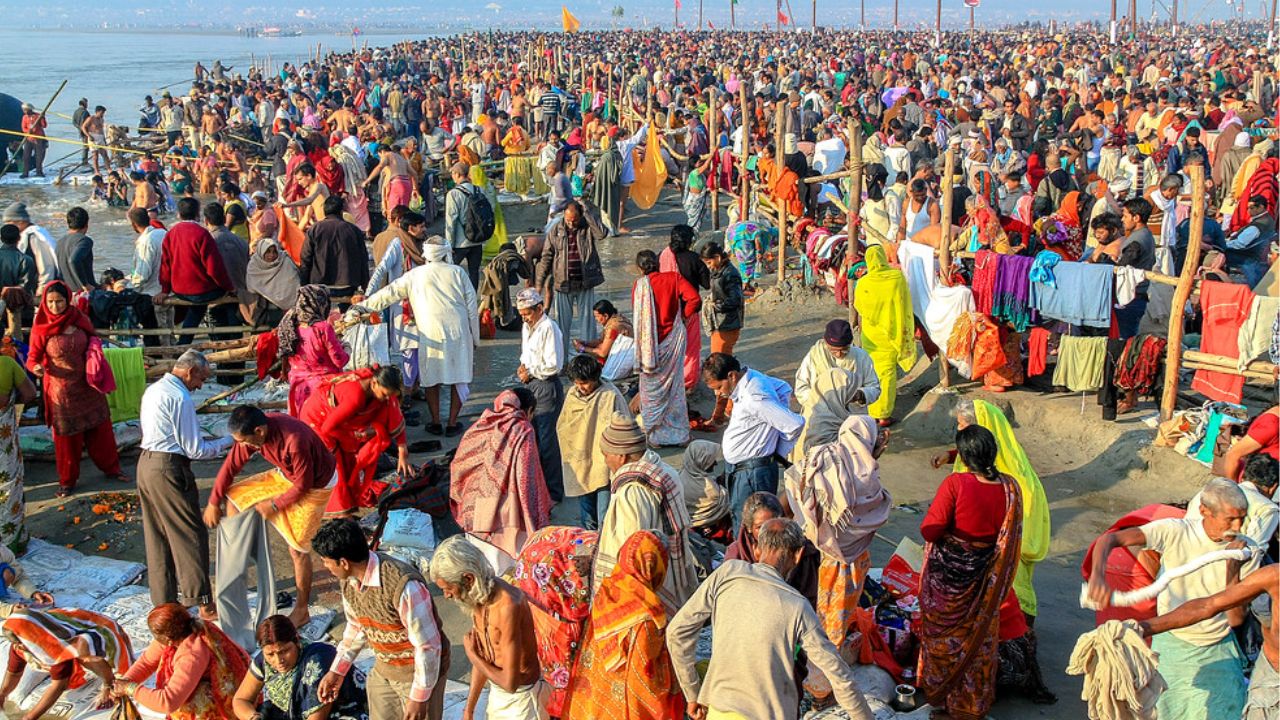The Maha Kumbh Mela 2025 has arrived in grand fashion, pulling in an estimated 40 crore attendees to Prayagraj’s Sangam area over 45 days.
The epic convergence of faith, culture and tradition that occurs every 12 years — officially kicked off on January 13 and will run through February 26, 2025. Recognized as on the largest gatherings in the world, it serves as an unmatched stage for brands to connect with a broad and diverse audience.
Read more: Maha Kumbh Mela 2025 begins in Prayagraj, drawing millions to the sacred Triveni Sangam
Read more: Maha Kumbh 2025: Brands pour in Rs 2,000 crore to engage record 45 crore devotees
Alongside spiritual activities, brands are seizing this mammoth gathering to connect with consumers—particularly from rural areas—through thoughtful initiatives and services.
Below, we spotlight standout campaigns that are blending faith with purpose-led marketing at the world’s largest religious congregation.
Dettol
Reckitt’s iconic hygiene brand, Dettol, is backing nearly 15,000 sanitation workers with training programs and easy access to soaps. By deploying health and hygiene volunteers across the Mela’s 25 sectors, Dettol is ensuring pilgrims stay safe and informed—underscoring the brand’s commitment to public health.
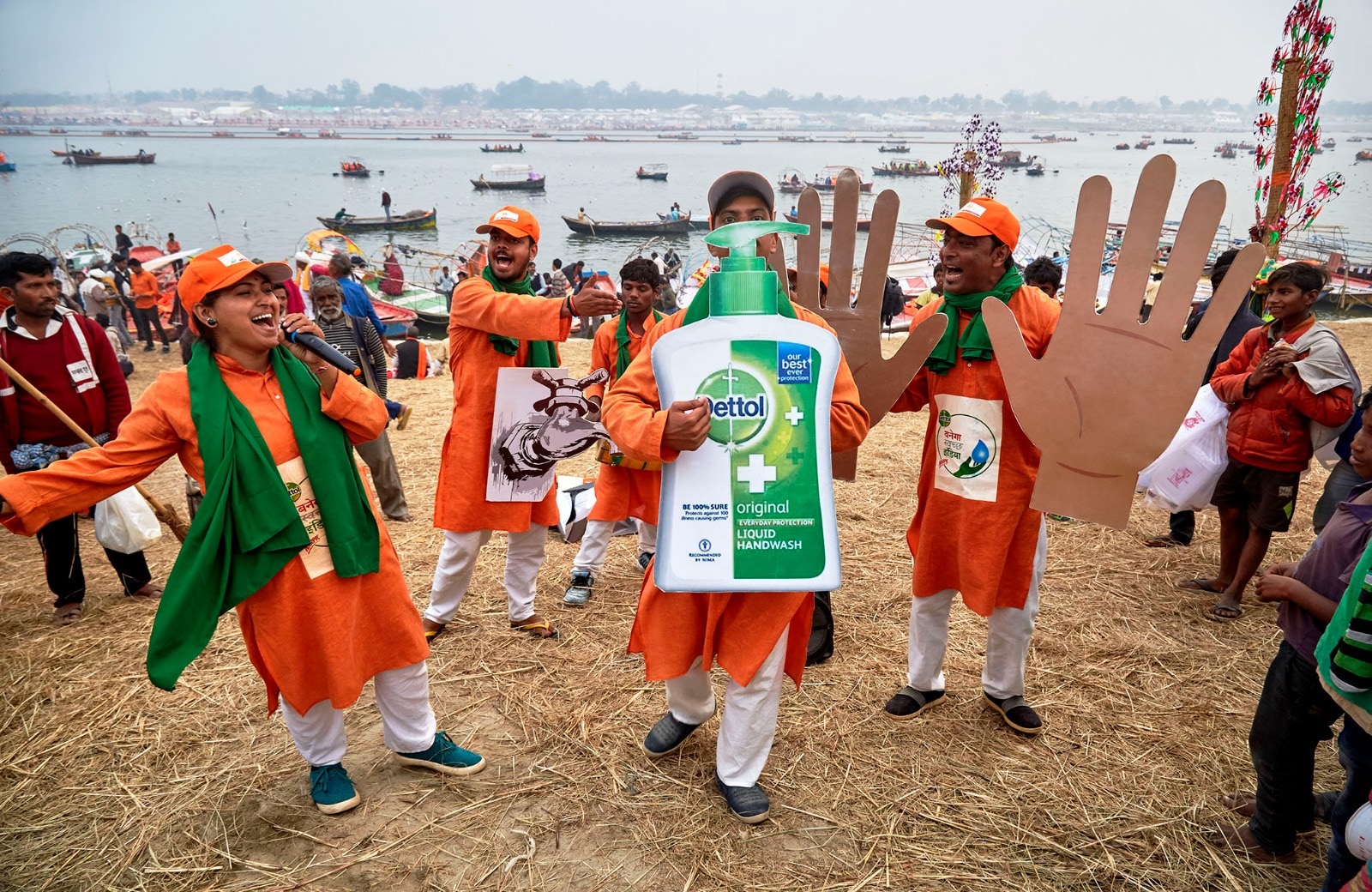
Blinkit
Blinkit opened a temporary 100 sq ft store at the Maha Kumbh Mela in Prayagraj to serve pilgrims and tourists. This store caters to Arail Tent City, Dome City, ITDC Luxury Camp, Devrakh, and other key areas around the mela. There is also a specially curated assortment of essentials, including pooja needs, milk, curd, fruits, and vegetables (both for personal consumption and for daan), as well as chargers, power banks, towels, blankets, bedsheets, and more. Moreover, Blinkit has also stocked Triveni Sangam Jal bottles, ensuring that all visitors can conveniently access both spiritual and daily necessities.
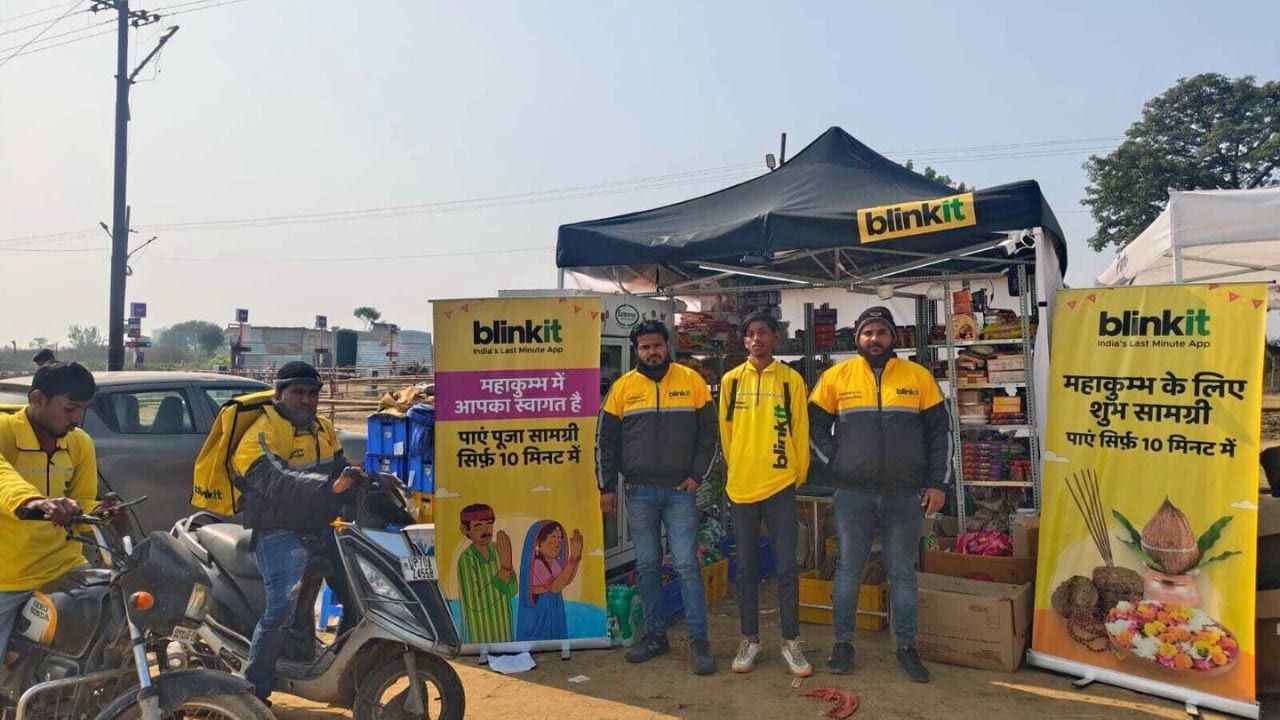
Dabur
Homegrown FMCG giant Dabur is rolling out consumer activations led by signature products like Dabur Chyawanprash, Dabur Honey, Dabur Red Paste, and more. These immersive experiences help Dabur reinforce its health and wellness ethos among a massive gathering, forging stronger connections with pilgrims from all walks of life.
Eveready
Eveready Industries is providing 5,000 Siren Torches (DL102) with powerful safety alarms to the Maha Kumbh Police, along with Ultima batteries. Crowd management is paramount at an event of this scale. Eveready’s torches not only illuminate the way but also help ensure a safer environment for millions of attendees.
Additionally, it enhanced the spiritual experience by installing 13,000 advanced LED lights, including 150W streetlights and 250W floodlights, across the expansive grounds to ensure safety and vibrancy for millions of attendees. Complemented by extensive branding across Prayagraj and the Mela grounds, the initiative highlights Eveready’s commitment to innovation, community empowerment, and cultural integration, while leveraging social media to amplify its impact and inspire a brighter India.
Omnigel
Omnigel, is advancing its commitment to care and comfort at Maha Kumbh devotees by setting up dedicated “Rahat Seva Kendra” to support pilgrims in managing the physical strain of the event. With long walks and crowded areas causing discomfort, particularly in the form of foot, back, and shoulder pain, the Rahat Seva Kendra will offer massages to help alleviate these aches, allowing pilgrims to feel refreshed and re-energized.
ITC Mangaldeep
ITC Mangaldeep is using 3D Augmented Reality (AR) technology to reshape spiritual experiences for Maha Kumbh 2025 attendees. The initiative lets devotees virtually participate in key rituals like the Shahi Snaan, Deep Daan, and Aarti from the comfort of their homes. Through a personalized AR filter, users can create unique souvenirs and share their spiritual moments with others. Additionally, Mangaldeep is organizing a hybrid Deep Daan ceremony, where virtual offerings made via AR will be physically carried to the Ganges each week.
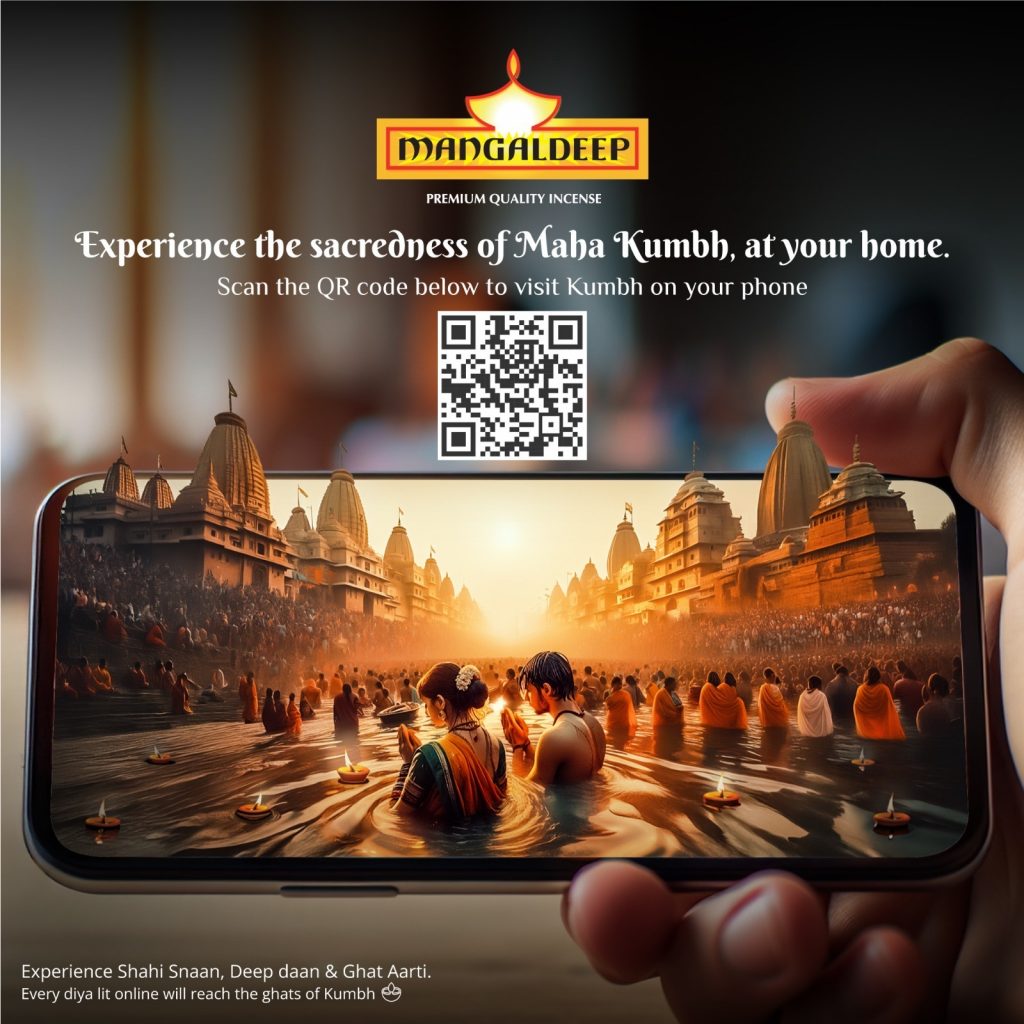
Paytm
Paytm is installing soundbox and card machines across the event for hassle-free digital payments. The brand has also launched the ‘Bhavya Mahakumbh QR’ to support merchants. From food stalls to parking lots, pilgrims can now pay via UPI, UPI Lite, or card — an essential step in driving financial inclusion and encouraging a cashless ecosystem at the Kumbh.
Mankind Pharma
Mankind Pharma has launched a 45-day healthcare mission at the 2025 Mahakumbh in Prayagraj, running from January 13 to 26. The camp, open daily from 12 PM to 4 PM, provides free health check-ups, blood pressure monitoring, and first-aid services to pilgrims. With the support of Mankind’s medical team and Pathkind facilities, the initiative aims to address the medical needs of the vast number of attendees, offering hundreds of free check-ups each day.
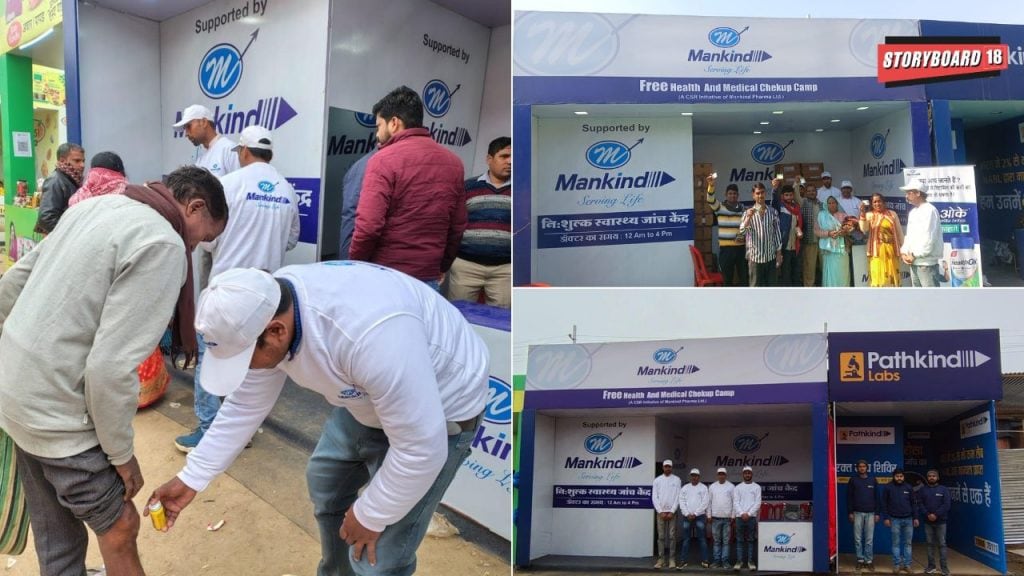
Reliance
the FMCG arm of Reliance Industries is focusing on convenience, setting up ‘aaram sthals’ (resting zones) for pilgrims undertaking long, challenging journeys. Beyond marketing, offering physical comfort and respite demonstrates an understanding of pilgrims’ needs — positioning Reliance as a consumer-centric brand.
Read more: Ministry of Tourism unveils major initiatives to promote Maha Kumbh 2025 as global tourism hub
Bank of Baroda
Bank of Baroda is setting up two operational branches, ATMs, and mobile ATMs at Maha Kumbh 2025 to provide seamless banking services, including foreign exchange, coin vending, and POS terminals, while promoting digital payments through UPI, QR codes, and its bob इ Pay app. With AI-powered assistant Aditi and on-ground support from BC Sakhis, the bank ensures convenience for pilgrims and merchants alike, aligning with the Digital India vision. Complementing these efforts, the bank also drives sustainability initiatives, such as green financing and CSR activities, making its presence at Maha Kumbh both impactful and inclusive.
Amazon
Amazon India, to ensure comfortable rest at the Maha Kumbh, has launched an initiative where they will upcycle their signature cardboard packaging into portable beds. These eco-friendly beds will be available to attendees at no cost, and will be placed in key areas, including: lost and found centers, common rest zones, the Kumbh Police Karmacharis’ stations, and the Kumbh hospital.
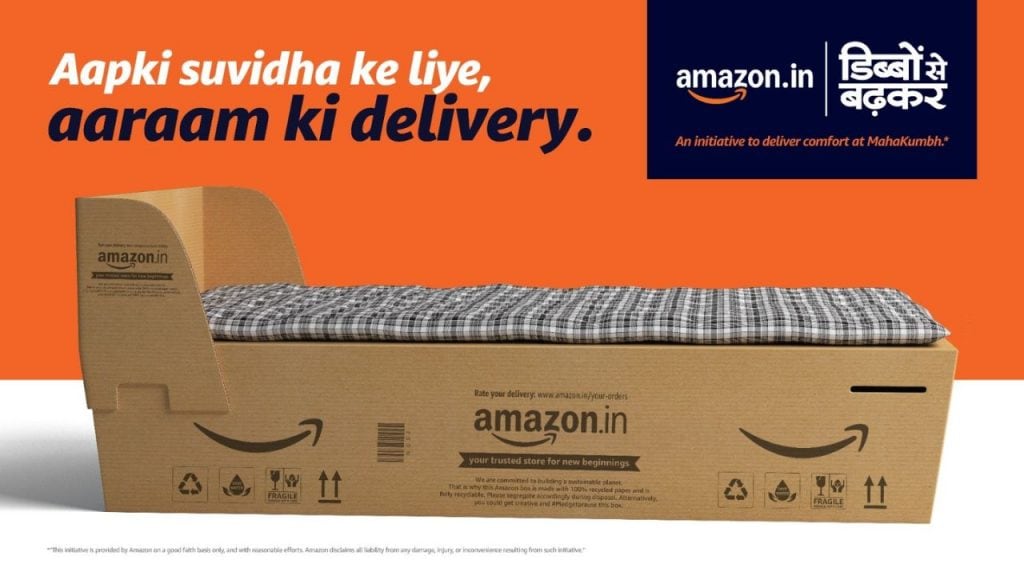
Airtel Payments Bank
Airtel Payments Bank is ensuring a secure and seamless digital banking experience at the Maha Kumbh Mela by setting up 10 strategically placed kiosks. These will let devotees and merchants withdraw funds, transfer money, and deposit earnings, even if their accounts are with other banks and Aadhaar-linked. Through QR-based digital payment acceptance and Soundbox devices with instant audio confirmations in local languages, merchants can operate hassle-free without handling excessive cash.
ONDC Network
The Open Network for Digital Commerce (ONDC) Network now enables devotees nationwide to receive prasad from the Maha Kumbh Mela and other sacred temples without traveling to the holy sites. Through Waayu, a seller network participant, prasad from the Bade Hanuman Ji Temple in Prayagraj and the Ayodhya Temple in Ayodhya can be ordered using popular buyer apps such as Paytm, Snapdeal, and more. Locally sourced and prepared with pure besan and ghee, the prasad is delivered via logistics partners within seven days, ensuring authenticity and sanctity.
Bingo! Tedhe Medhe
ITC Bingo! Tedhe Medhe is launching an experiential campaign, “Bhaukaal Lok,” at Mahakumbh 2025, blending Uttar Pradesh’s vibrant culture and bold flavors with the brand’s quirky essence. The campaign features an immersive Bhaukaal Zone with attractions like a BYOB (Bring Your Own Bingo!) Chaat Zone for creating unique snacks, an Interactive Content Zone for social media engagement, and a Bingo! Bonfire for fiery flavors and festivities.
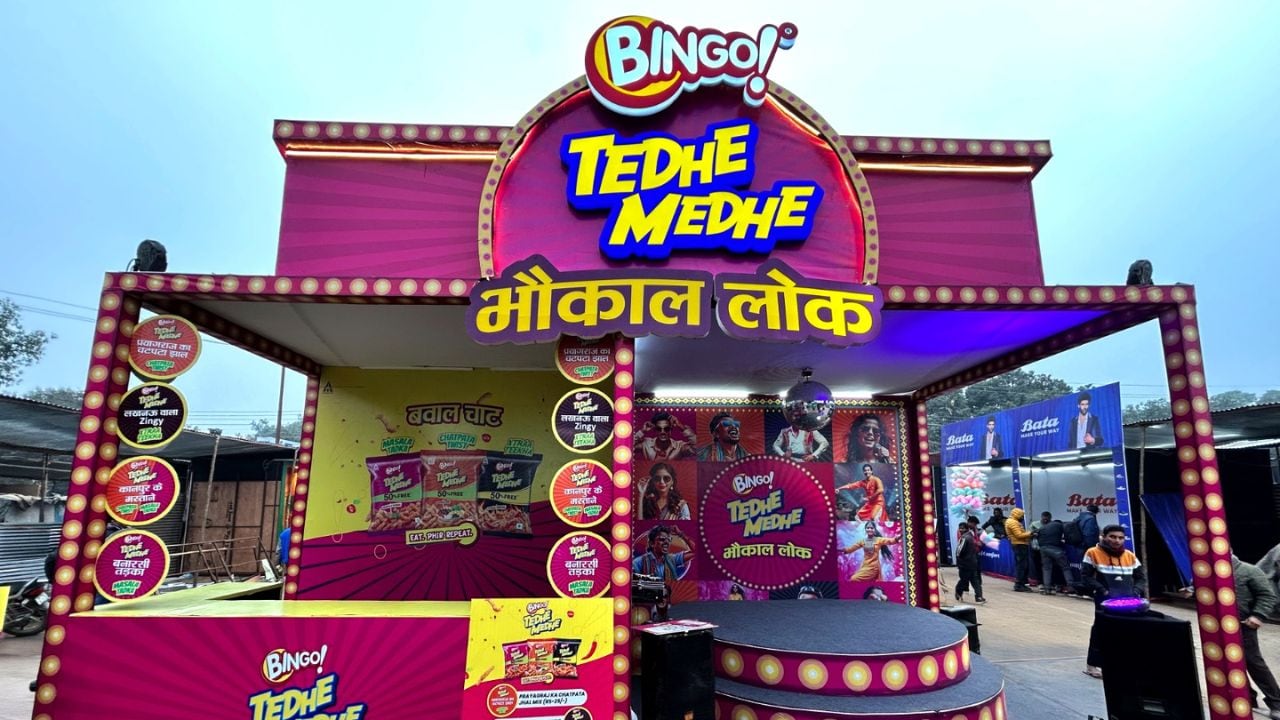
DS Group
– Pulse-branded kalash and bags: Pulse is offering specially designed Kalash (water pots) for collecting sacred river water, symbolizing a purified life. Pulse-branded bags are also provided to carry religious items collected during the visit.
– Pulse-branded umbrellas: To provide comfort under the sun, Pulse umbrellas are available, offering much-needed shade.
– AI-generated video: An engaging AI-generated video highlights the history and significance of the Poorn Mahakumbh, adding an educational element to the spiritual experience.
Pass Pass
– Branded boats for easy access: Pass Pass-branded boats are stationed for convenient travel to the ghats, making pilgrim journeys smoother and more accessible.
Catch Salt & Spices
– Exclusive dhabas and food tie-Ups: Catch Salt and Spices has partnered with over 100 dhabas and food joints across the city, creating a dedicated zone for consumer engagement.
– ‘Sangam Ki Goonj’ campaign: This unique campaign blends the spiritual act of bell ringing with culinary delight. Digital bells are integrated at all touchpoints, and physical bells are placed at key locations, creating a seamless blend of tradition and taste.
– OOH advertising and ashram partnerships: Catch Spices has a prominent presence through OOH advertising at two strategic locations and exclusive partnerships with five large-format ashrams, where their spices are the only ones used.
PepsiCo
A towering 30-foot illuminated Mountain Dew bottle serves as a landmark within the Mela. Under energy drink brand Sting, over 500 device-charging points are scattered around. With the sheer scale of the Mela, staying connected and navigating the area can be daunting. PepsiCo’s eye-catching solutions underscore how brands can blend visibility with genuine utility.
Uber
Uber has partnered with the Airports Authority of India (AAI) at Prayagraj Airport in Uttar Pradesh to ensure seamless, efficient transport for millions of pilgrims and travellers. This collaboration will offer hassle-free mobility solutions and enhance the overall travel experience for visitors.
Ola
Ola has deployed 1,000 electric scooters to provide a sustainable and cost-effective travel option across the Mela grounds. In collaboration with event organizers, Ola also introduced tech-driven solutions. At the forefront of this initiative is the Kumbh Sah’AI’yak app, developed by India’s first AI unicorn, कृत्रिम, to offer navigation and personalized insights about the Kumbh Mela. Additionally, Ola Consumer has rolled out electric vehicle shuttles, affordable cab rentals, and dedicated transit options at airports and railway stations to further improve accessibility for pilgrims.
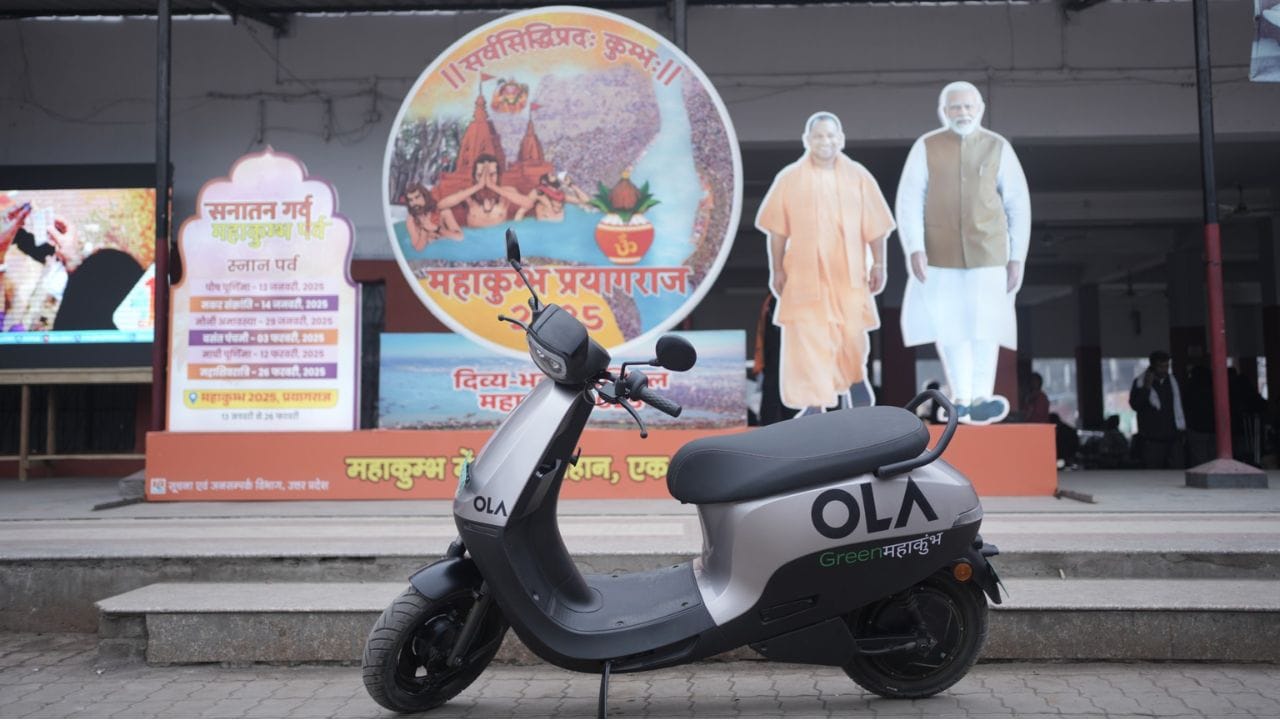
Coca-Cola
Coca-Cola India and its foundation, Anandana, have partnered with the PHD Rural Development Foundation (PHDRDF) and Prayagraj Mela Authority (PMA) for Maha Kumbh 2025. Under the “Maidaan Saaf” campaign, they are distributing 21,500 jackets made from recycled PET to sanitation workers, boatmen, and waste management volunteers—helping them stay safe while highlighting the value of recycled materials.
They have also installed 1,000 women’s changing rooms along the river ghats, constructed entirely from recycled multi-layer plastic. Illustrated by local artists, these structures provide privacy, promote responsible plastic use, and encourage visitors to view waste as a resource rather than a burden.
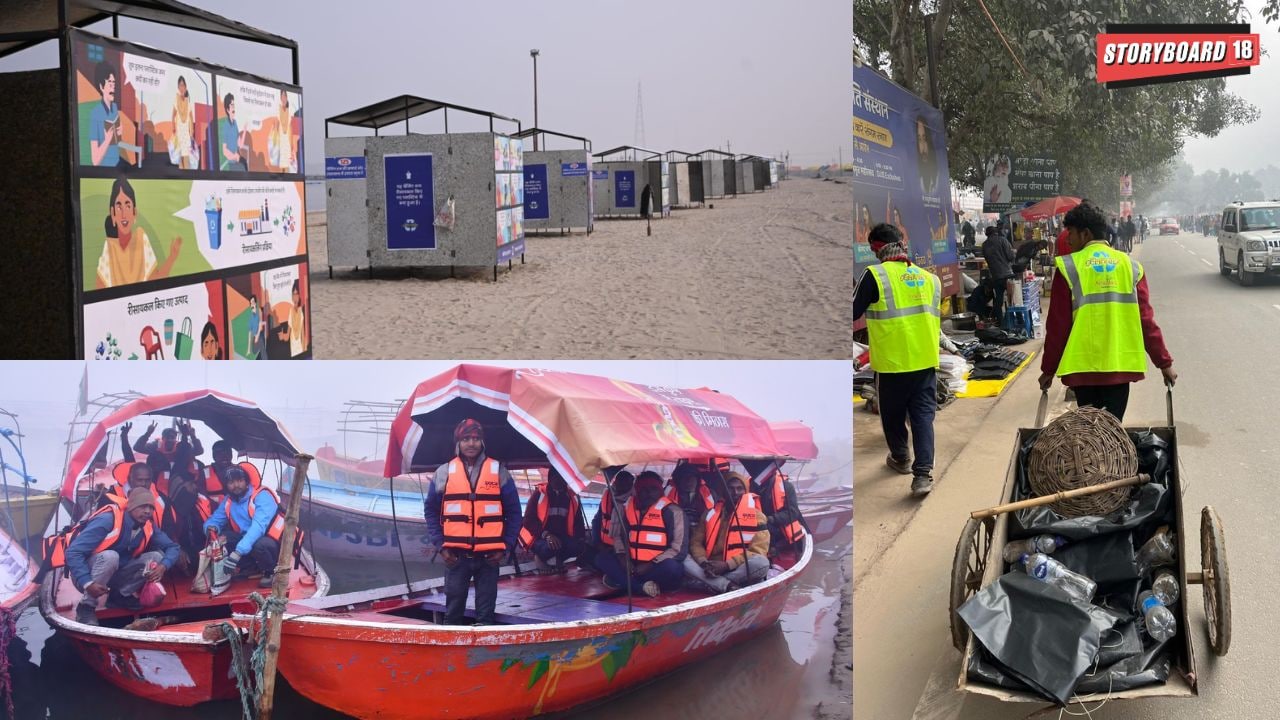
CHUK
CHUK, the flagship brand of Pakka Limited, has partnered with the Maha Kumbh Mela Trust as the official tableware supplier for the event. The collaboration aims to provide sustainable, compostable bagasse-based tableware to government-participating restaurants, ensuring hygienic and eco-friendly service for millions of devotees attending the Kumbh.
Whether it’s about hygiene, convenience, or tech-driven experiences, these brands are demonstrating how purpose-led campaigns can resonate in a mega-event like the Maha Kumbh.
From Dettol’s sanitation drive to Paytm’s digital payment push, each initiative offers a glimpse into how businesses are earning a goodwill while enhancing the pilgrim experience.
Read more: 10 technological innovations that will redefine Maha Kumbh 2025
